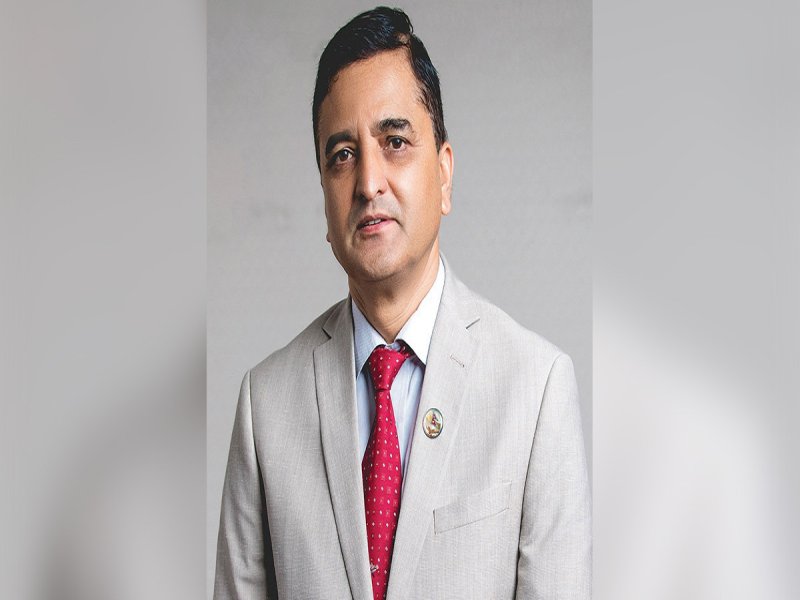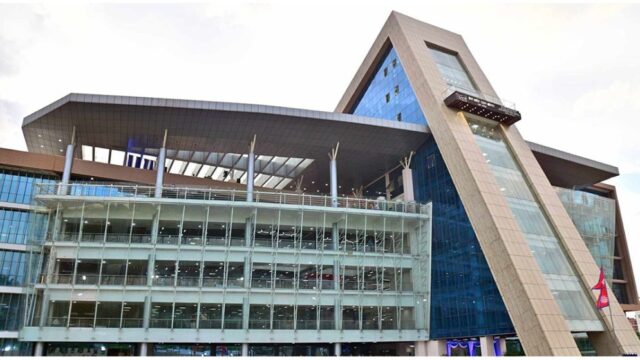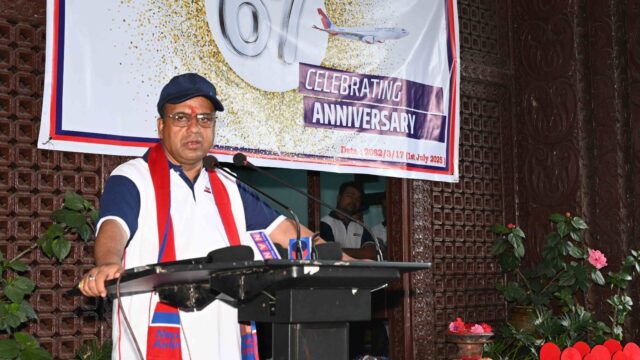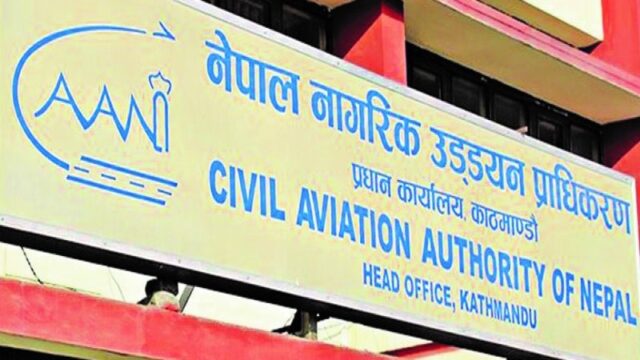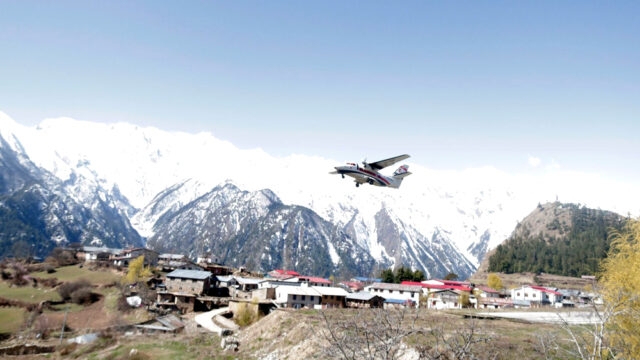A parliamentary subcommittee has begun an in-depth investigation into the problems hindering the full operation of Gautam Buddha International Airport (GBIA) in Bhairahawa. Led by Yogesh Bhattarai, a member of the House of Representatives and secretary of the CPN-UML, the subcommittee is scrutinizing issues related to land acquisition, compensation distribution, and equipment procurement.
From Sunday to Tuesday, the subcommittee held extensive discussions with various stakeholders in Rupandehi concerning the airport. The members of the subcommittee include Achyut Prasad Mainali, Amresh Kumar Singh, Bikram Pandey, Manju Khan, Manish Jha, Shyam Kumar Ghimire, and Seraj Ahmed Faruqi.
In addition to their consultations in Rupandehi, the subcommittee also engaged with stakeholders in Lumbini, the birthplace of Buddha. They conducted on-site inspections and met with representatives from the Civil Aviation Authority of Nepal (CAAN), airport officials, federal and provincial parliament members, local representatives, and the private sector.
Yogesh Bhattarai stated that the subcommittee will compile its findings and submit a detailed report to the Public Accounts Committee. He highlighted that 500 bighas of land were acquired for the airport for 22 billion NPR, and there will be an investigation to determine if such a large amount of land was necessary and if there were any irregularities in the compensation distribution.
Bhattarai emphasized that the subcommittee will thoroughly investigate all aspects of the airport project, including the master plan, land acquisition, compensation, costs, procurement processes, and the overall current status. The government has invested approximately 36 billion NPR in the construction of various structures, equipment procurement, and compensation distribution for GBIA.
Despite being inaugurated two years ago, GBIA has faced significant operational challenges, with international flights currently limited to chartered services. The subcommittee’s discussions revealed issues such as the lack of a visa center, manpower companies, and insurance companies at the airport, as well as the narrow terminal building and irregularities in land acquisition and compensation.
Private sector representatives and local officials expressed concerns that the airport has not been fully operational due to government apathy. They noted that even Nepal Airlines has not commenced flights from Bhairahawa, resulting in potential losses exceeding 100 billion NPR for both the private and public sectors.
Krishna Prasad Sharma, president of the Federation of Nepalese Chambers of Commerce and Industry, Lumbini Province, reported that the private sector has invested over 80 billion NPR in the Bhairahawa and Lumbini areas based on the airport’s operations. He criticized the government for not fulfilling its promises and expressed frustration at the lack of returns on their investments.
Tourism entrepreneurs and local business leaders urged the government to decentralize international flights from Kathmandu to other airports like GBIA. They emphasized that many young people from the Narayani region, who seek foreign employment, could benefit from processing their travel documents and flying out from Bhairahawa.
The initial project cost was estimated at 30.91 billion NPR, including compensation, but it increased to 35.66 billion NPR due to extended construction timelines. The airport, a national pride project, was inaugurated in January 2015 and became operational in May 2022.
Despite government incentives like 100% discounts on landing, shelter, parking, communication, and aviation support fees, international airlines have been reluctant to operate from GBIA. Some airlines that commenced operations have since suspended their services. Jazeera Airways conducted 110 flights to Bhairahawa until April 2024, while Himalaya Airlines operated 68 charter flights between Bhairahawa and Malaysia.
Nepal Airlines has operated a weekly ‘touchdown’ flight from Malaysia to Bhairahawa since May 2023. CPN-UML Vice President and Rupandehi representative Bishnu Poudel accused the government of neglecting GBIA’s operational needs and failing to prioritize it despite its completion.
Poudel called for comprehensive stakeholder discussions and clearly defined responsibilities to ensure the airport’s success, emphasizing its national importance. He stated, “If this airport operates well, it will redefine development.” He urged swift action, saying, “Let’s not delay any further. Let’s set a timeline and work to make this airport fully operational.
